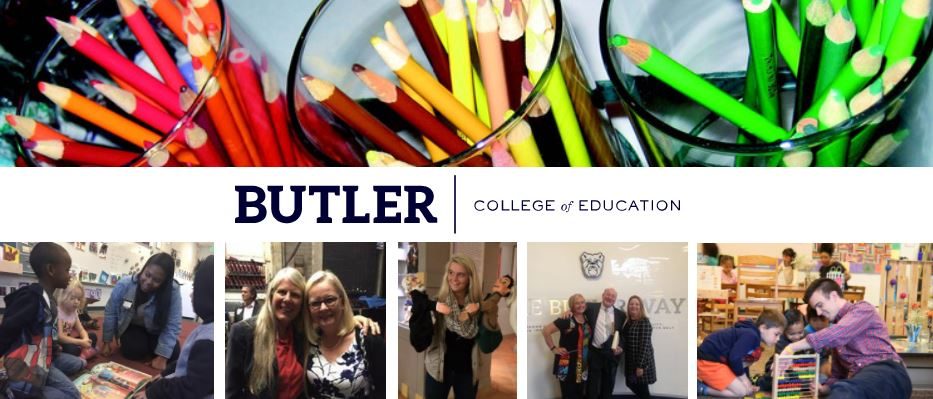Let’s Move Beyond the Headshaking
The news is full of stories about education. Articles that discuss teacher regulations or programs that tout sending underprepared teachers in to work with our most vulnerable children are in newspapers and blogs everywhere. We often shake our heads as we lament, “I wish they could see my kids and my classroom,” or “I wish they could know how hard and rewarding my teacher preparation was,” or “I wish those who were actually teaching could impact the decisions being made.”
It’s time to move beyond the head shaking.
It’s time to set aside the humility that educators so ardently wield.
It’s time to become an advocate for educational issues that light your fire.
It’s time to be the voice for our children.
Recently two of our newest graduates wrote a passionate op-ed piece. I share it with you in its entirety below with the challenge to write your own—to your local paper, to the national news, in response to the latest blog. Then send it to us. We’ll add it to our blog and help you spread the word.
Let’s lift up our heads, find our voice, and speak up!
Until next month,
Dr. Ena Shelley
Dean, College of Education
Letter to the Editor
February 2015
Education is once again a priority on the political docket for spring of 2015 and many people wait anxiously to see what will happen. Our education system is the most comprehensive institution in the land with many interwoven threads. The federal laws currently being proposed pull at the significant thread of accountability; now students’ standardized test scores will not only follow the child, but also their teachers, all the way back to their university teacher preparatory program. This pull is strong and it is a huge mistake.
Institutions of higher education have never undervalued accountability when based on researched practices and equity. If enacted, these untested laws will have monumental, long term effects on acceptance to teacher education programs, quality of teachers in the classroom, and the fabric of education. As young teachers, it can be discouraging to consider the systemic challenges facing our profession today. As recent graduates entering the profession, the hardest question for us has been, “Why would you want to be a teacher?” Our responses are complicated. How can anyone truly called to teach express their desire to change the world by inspiring a child to see their inherent potential–even if it is not yet personally recognized?
For us, the answer is much more than loving kids and wanting a “fun” job with a long summer. It stems from the desire to watch children’s eyes glow with the fierceness of knowledge and passion of curiosity, to hear important questions they feel supported enough to ask, and to be a part of a profession committed to the idea that children and schools can exist as beacons of hope for our world fraught with challenges. We submit to you these are the real reasons exemplary educators stay in the profession, push the boundaries of our field, and are the teachers every parent wants educating their children.
But exemplary teachers don’t just happen overnight. Prospective educators should choose university level programs with a lauded legacy and commitment to building the best teachers. Because of the strong scaffold built by our College of Education (COE), we were taught by example how to invest in our students’ lives, to challenge them to seek greater goals, and to support them far beyond any test or worksheet. In addition our COE reaffirmed our passion for devoting ourselves to our students and enriching the field of education.
This sustainable model created by our COE supersedes any motivation facilitated by the test/punish accountability model being proposed at the federal level. It is based on our unwavering responsibility to educate students to the best of our ability through research-based strategies, reflection, and revision. The new laws will potentially eliminate this level of professional preparation for many people who have the capacity to become great teachers. These individuals are instead being molded by unsustainable programs which prepare for a short, gap experience in the field of education. Furthermore, these programs would be exempt from these new federal laws altogether. This will have instant, negative consequences for children in classrooms.
We urge everyone to consider the power of a truly great teacher—a passionate individual undaunted by challenge, and willing to dedicate years to an influential career focused on the academic, emotional, and social growth of children. We believe the success of our education system demands high quality Colleges of Education, which challenge pre-service educators to envision schools as they should exist for both our current students and those we have not yet welcomed on the first day of school.
Ms. Shelbi Burnett ’14
Ms. Ashlee Hammer ’14
Alumnae—Butler University
College of Education

